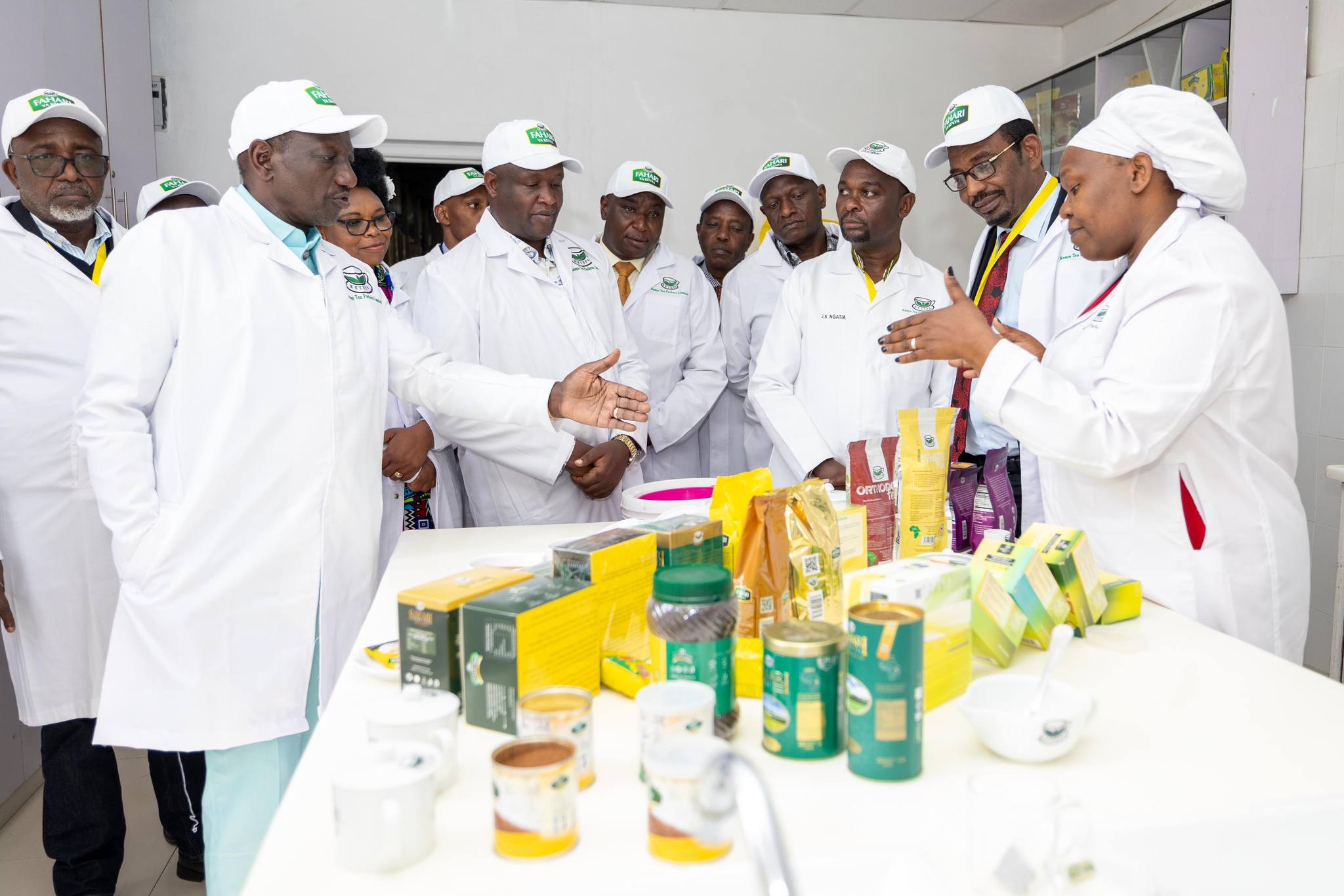Ongoing agricultural reforms lead to higher earnings for small scale tea growers in Kenya
BY JOSEPH WANGUI (DPCS)
Small-scale farmers in the tea and coffee subsectors have started earning more money as the ongoing reforms in these sectors begin to bear fruit.
Deputy President Rigathi Gachagua stated that the annual bonus payout for over 800,000 small-scale farmers supplying green leaf tea to KTDA-managed factories has improved in several locations due to these agricultural reforms.
“Looking at the figures, the bonus payments in most KTDA factories have improved and are higher in a number of factories, especially in the eastern Rift Valley,” he said. Gacharage Tea Factory from Murang’a County tops the list of KTDA-managed factories with the highest bonus payments, announcing a rate of Sh62.80 per kilogram.
It is followed by Mununga at Sh62.65, while Makomboki ranks third at a rate of Sh62.50.
Deputy President Gachagua noted that demonstrations by farmers at locations such as Githambo Tea Factory in Murang’a, as well as other factories in Nandi and Bomet counties, are part of the reforms aimed at educating small-scale farmers.
“Demonstrations occur in places where tea directors have increased the cost of production, and farmers are raising questions due to their heightened awareness.” Directors have had too many travels and allowances, so the cost of production is eating on the profit of the tea farmer.
Farmers are aware because of the reforms,” he added. The Deputy President said farmers will gain more once the Tea Act will be implemented fully following the withdrawal of court cases that were a stumbling block.
“I held the tea conference in Kericho and brought together all stakeholders. But there was a big problem with the implementation of the Tea Act because various stakeholders had gone to court.
“Through my intervention, I have successfully negotiated all those cases to be dropped, and the Tea Act will be implemented to the latter and farmers will get a return on investment,” Mr Gachagua said.
He said that he had unlocked the stalemate at Mombasa Tea Auction and the stocks are now moving.
“We had a challenge with tea from the Western Region of the Rift Valley (Kericho, Bomet and Nandi) because they had set a reserved price that was too high against the quality, therefore, stocks were not moving. “I went to Mombasa Auction, and we have adjusted the reserved price, brought it a little down so that the stocks can move,” he stated.
About the coffee industry, the Deputy President said the government is banking on legal amendment proposals contained in the Coffee Bill, 2023 and Cooperatives Bill, 2023, which are pending before Parliament, to turn around the sub-sector.
The Bills are because of reforms initiated after a robust conversation with farmers and other stakeholders in the Meru Coffee Conference in 2023. He said earnings of coffee farmers have improved this year since the majority of them pocketed an average of Sh100 per kilogramme of coffee delivered to their respective factories.
“I had a very successful coffee reforms conference in Meru, bringing together all stakeholders. Out of that conference, we worked with all stakeholders and came out with the Coffee Bill, 2023 that is now before the National Assembly.
In that Bill, we recommended the re-establishment of the Coffee Board of Kenya to market coffee for farmers instead of private entrepreneurs,” he said.
Another recommendation in the Bill, he said, is the revival of the Coffee Research Foundation to work on disease tolerant crop varieties. Mr Gachagua added that since he was tasked to lead reforms, the government has been able to initiate a direct sales settlement system where coffee farmers sell their produce directly.

